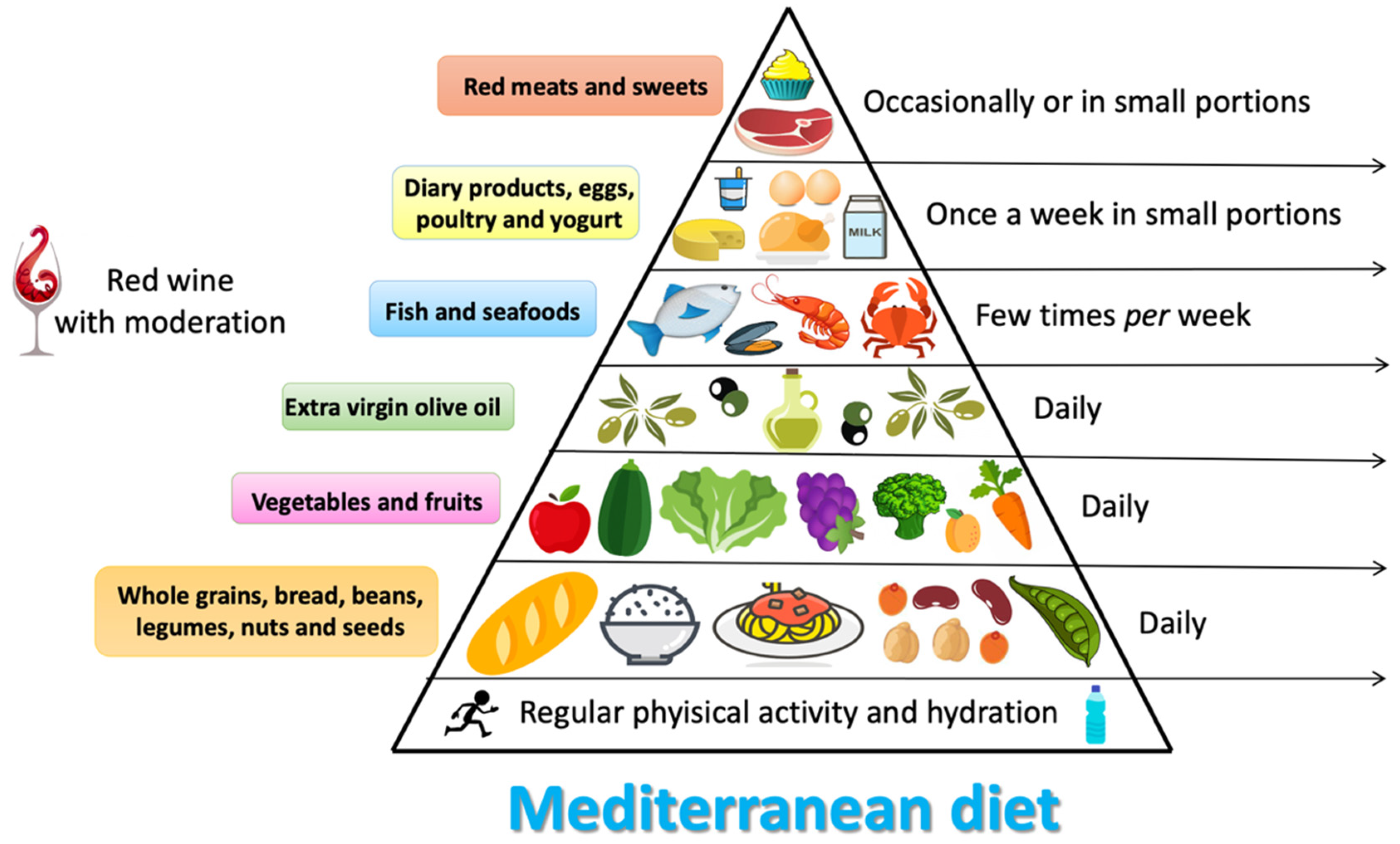“Unlocking the Secrets of Mediterranean Diet for Effective Weight Loss and Health”
The Mediterranean Diet for Weight Loss
The Mediterranean diet is not just a diet; it’s a way of life that promotes not only weight loss but also overall health and well-being. This article will delve into the specifics of the Mediterranean diet, its origins, key components, and how it can aid in weight loss. So, if you’re looking for an effective and sustainable way to shed those extra pounds, the Mediterranean diet might be the answer you’ve been searching for.

What is the Mediterranean Diet?
The Mediterranean diet is a dietary pattern inspired by the traditional eating habits of people living in countries bordering the Mediterranean Sea, like Greece, Italy, and Spain. It’s characterized by a high consumption of fruits, vegetables, whole grains, legumes, and healthy fats, particularly olive oil.
Origins of the Mediterranean Diet
This diet has ancient roots, dating back centuries. The people of the Mediterranean region have long enjoyed the benefits of this diet, which has contributed to their lower rates of heart disease, obesity, and other chronic illnesses.
The Key Components of the Mediterranean Diet

The Mediterranean diet emphasizes several key components:
- Abundant consumption of fresh fruits and vegetables
- Whole grains like whole wheat, barley, and oats
- Healthy fats, mainly olive oil
- Lean protein sources such as fish and poultry
- Limited red meat consumption
- A moderate intake of dairy, particularly yogurt and cheese
- Nuts and seeds as snacks
- An occasional glass of red wine
Health Benefits of the Mediterranean Diet
One of the remarkable aspects of the Mediterranean diet is its numerous health benefits. It has been associated with reduced risk factors for many chronic diseases, including heart disease, diabetes, and certain types of cancer.
read more about Keto for Vegetarians: How to Maintain Ketosis without Meat
Mediterranean Diet for Weight Loss

The Mediterranean diet is not primarily marketed as a weight loss diet, but many people have experienced significant weight loss while following it. This is due to its focus on whole, nutrient-dense foods and healthy fats, which can promote a sense of fullness and reduce overall calorie consumption.
How Does the Mediterranean Diet Promote Weight Loss?
The Mediterranean diet encourages weight loss through several mechanisms:
- High-fiber foods increase feelings of fullness.
- Healthy fats like olive oil promote satiety.
- Balanced intake of macronutrients helps maintain energy levels.
- A focus on whole foods reduces processed and high-calorie options.
- Regular consumption of fruits and vegetables provides essential nutrients.
- A reduced intake of red meat decreases calorie and fat consumption.
Sample Mediterranean Diet Meal Plan

Here’s a simple one-day meal plan that illustrates how you can structure your meals while following the Mediterranean diet for weight loss:
Breakfast:

- Greek yogurt with honey and berries
- Whole-grain toast with avocado
Lunch:

- Mediterranean salad with mixed greens, tomatoes, cucumbers, olives, and feta cheese
- Grilled chicken breast
Dinner:

- Baked salmon with a drizzle of olive oil
- Quinoa
- Roasted asparagus and red peppers
Foods to Embrace in a Mediterranean Diet
The Mediterranean diet encourages the consumption of nutrient-dense foods such as:
- Fresh fruits and vegetables
- Whole grains
- Legumes (beans, lentils, chickpeas)
- Fish and seafood
- Nuts and seeds
- Olive oil
Foods to Avoid in a Mediterranean Diet

To fully embrace the Mediterranean diet for weight loss, it’s essential to limit or avoid:
- Processed and sugary foods
- Red meat
- Trans fats and hydrogenated oils
- Excessive consumption of dairy
Incorporating Exercise into Your Mediterranean Diet Plan
While the Mediterranean diet is effective for weight loss, combining it with regular exercise can amplify the results. Engaging in activities like walking, swimming, and yoga can enhance your overall health and fitness.
Success Stories of Weight Loss with the Mediterranean Diet
Many individuals have achieved significant weight loss success stories by adopting the Mediterranean diet. Real-life examples serve as a source of inspiration and motivation for those considering this lifestyle change.
Expert Opinions on the Mediterranean Diet
Numerous nutritionists and healthcare professionals endorse the Mediterranean diet as a sustainable and effective approach to weight loss and improved health.
Practical Tips for Starting a Mediterranean Diet

If you’re eager to start your Mediterranean diet journey, here are some practical tips to get you going:
- Gradually transition to this diet to allow your palate to adjust.
- Experiment with Mediterranean recipes to keep your meals exciting.
- Stay hydrated by drinking plenty of water.
- Practice portion control.
Conclusion
The Mediterranean diet offers a balanced and holistic approach to weight loss and overall well-being. By focusing on fresh, whole foods, healthy fats, and a diverse array of nutrients, it’s a diet that’s not only effective but sustainable in the long term.
Frequently Asked Questions (FAQs)
- Is the Mediterranean diet suitable for vegetarians?
- Yes, the Mediterranean diet can be adapted to suit vegetarian preferences by emphasizing plant-based foods and lean protein sources like legumes.
- How soon can I expect to see weight loss results with the Mediterranean diet?
- The rate of weight loss varies from person to person, but many individuals experience noticeable results within a few weeks of adopting the diet.
- Can I have cheat days on the Mediterranean diet?
- Occasional indulgences are acceptable, but it’s essential to maintain a predominantly Mediterranean diet for optimal results.
- What are the potential downsides of the Mediterranean diet?
- The Mediterranean diet is generally considered safe and healthy, but it may not be suitable for individuals with specific dietary restrictions or allergies.
- Are there any age restrictions for following the Mediterranean diet?
- The Mediterranean diet is suitable for people of all ages, from children to seniors, and can promote health at every stage of life.









 Viesearch - The Human-curated Search Engine
Viesearch - The Human-curated Search Engine
